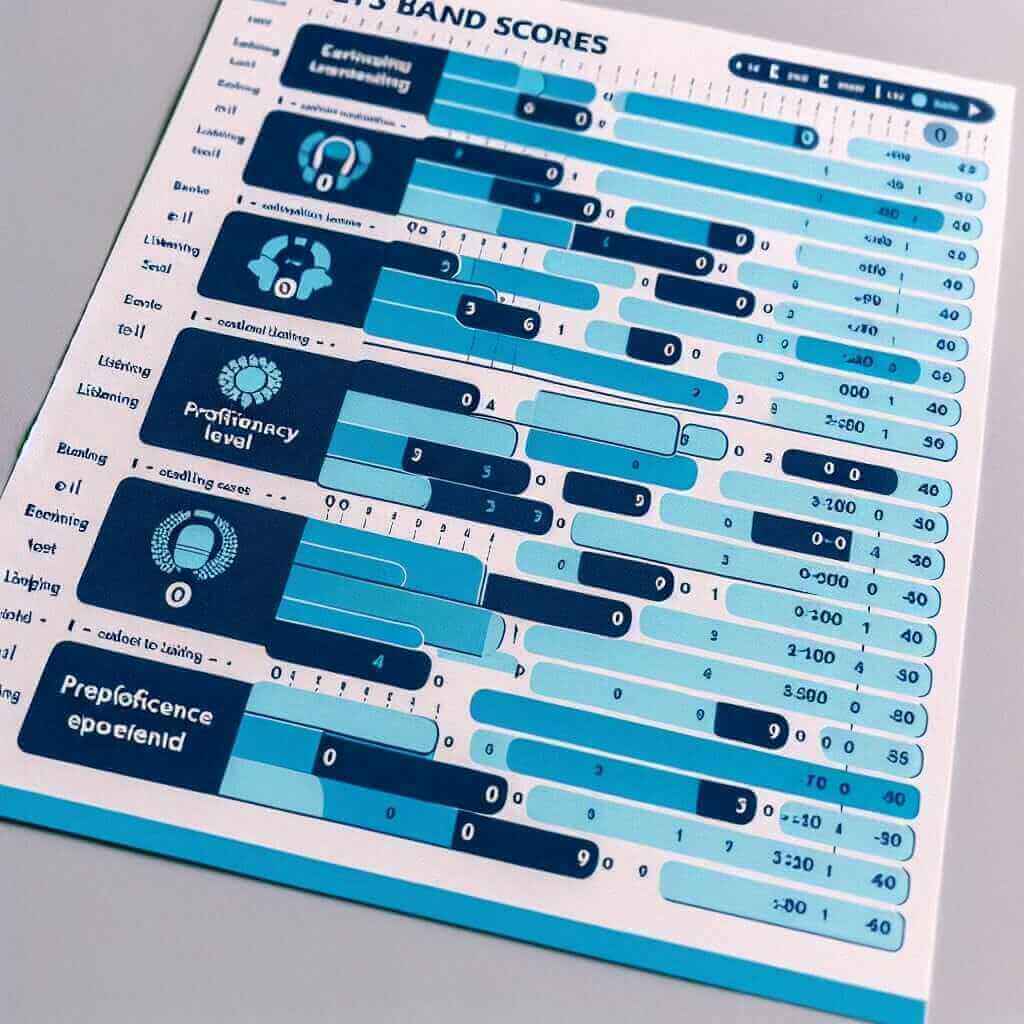Preparing for the IELTS exam can be both exciting and challenging. Among the four sections (Listening, Reading, Writing, and Speaking), the Listening section often poses unique challenges to test-takers. This article aims to address a common query: “What is the IELTS Listening Band Requirement?”. By understanding this requirement, candidates can better tailor their preparation strategies to enhance their performance.
Understanding the IELTS Listening Band Requirement
The IELTS Listening section is scored on a band scale of 0 to 9, with 9 being the highest. Your Listening band score reflects your ability to understand spoken English in various contexts and accents. Universities, immigration authorities, and employers may have specific band score requirements depending on the nature of the course or job.
Band Score Description
- Band 9: Expert user – fully operational command of the language: appropriate, accurate, and fluent with complete understanding.
- Band 8: Very good user – fully operational command with only occasional unsystematic inaccuracies and inappropriacies.
- Band 7: Good user – operational command with occasional inaccuracies, inappropriacies and misunderstandings in some situations.
- Band 6: Competent user – generally effective command despite some inaccuracies, inappropriacies and misunderstandings.
- Band 5: Modest user – partial command, coping with overall meaning in most situations, though likely to make many mistakes.
- Band 4: Limited user – basic competence is limited to familiar situations, frequent problems in understanding and expression.
- Band 3: Extremely limited user – conveys and understands only general meaning in very familiar situations.
- Band 2: Intermittent user – no real communication possible except for the most basic information using isolated words or short formulae in familiar situations.
- Band 1: Non user – essentially has no ability to use the language beyond possibly a few isolated words.
- Band 0: Did not attempt the test.
Example Requirements
- University Admissions: Many universities require an overall band score of at least 6.5, with no less than 6.0 in any section.
- Immigration: Different countries have varying requirements. For instance, the UK may require a band score of 6.5 for Tier 4 student visas.
- Professional Registration: Healthcare professionals often need at least a band score of 7.0.

Common Queries about the IELTS Listening Band Requirement
What’s a good band score for IELTS Listening?
A “good” score is subjective and depends on your goals. Generally, a score of 6.5 to 8.0 is considered good, meeting most academic and professional requirements.
How is the IELTS Listening section structured?
The Listening section consists of four parts, each with 10 questions. The recordings include a mix of monologues and conversations, with topics ranging from everyday social situations to educational contexts.
How many correct answers do I need to achieve a specific band score?
The number of correct answers needed varies:
- Band 9: 39-40 correct answers
- Band 8: 35-38 correct answers
- Band 7: 30-34 correct answers
- Band 6: 23-29 correct answers
Examples and Strategies for IELTS Listening
Example IELTS Listening Question
Recording:
“You will hear a conversation between a student and a university advisor about studying abroad.”
Example Question:
- What is the main topic of the conversation?
- A) Choosing a major
- B) Applying for scholarships
- C) Studying abroad
- D) Housing options
Answer:
- The main topic is C) Studying abroad.
Strategies for Success
- Practice Active Listening: Actively listen to English conversations, podcasts, and news broadcasts. This helps in understanding different accents and speech patterns.
- Take Practice Tests: Regular practice tests simulate real test conditions, helping you manage time and pressure.
- Note-taking Skills: Develop efficient note-taking skills to jot down key points while listening to recordings.
- Expand Vocabulary: A robust vocabulary aids in better comprehension of the Listening section’s context.
Common Mistakes and How to Avoid Them
Mistake 1: Not Following Instructions Carefully
Always read and follow the instructions for each section. Misinterpreting instructions can lead to incorrect answers.
Mistake 2: Losing Focus
Stay focused throughout the recordings. Missing a detail can result in losing multiple points.
Mistake 3: Guessing Without Confirmation
Guessing answers without any confirmation can be risky. It’s better to use logical deduction based on the context.
Effective Practice Techniques
- Mock Tests: Simulate the exam environment by timing yourself during practice tests.
- Peer Group Practice: Practice with peers to discuss answers and clarify doubts.
- Audio Materials: Use IELTS preparation materials and audio resources to get accustomed to various accents.
Conclusion
Understanding the IELTS Listening band requirement is crucial for setting clear goals and preparing effectively. Focused practice, familiarization with various accents, and strategic preparation can significantly enhance your Listening skills and help you achieve the desired band score. Feel free to explore more resources and practice materials on our website and leave any questions or comments below. Good luck with your IELTS preparation!
Explore More:
- IELTS Reading Strategies
- Tips for IELTS Writing Task 1
- How to Improve Your Speaking Skills for IELTS
Remember, continuous practice and a positive attitude are key to acing the IELTS Listening section!